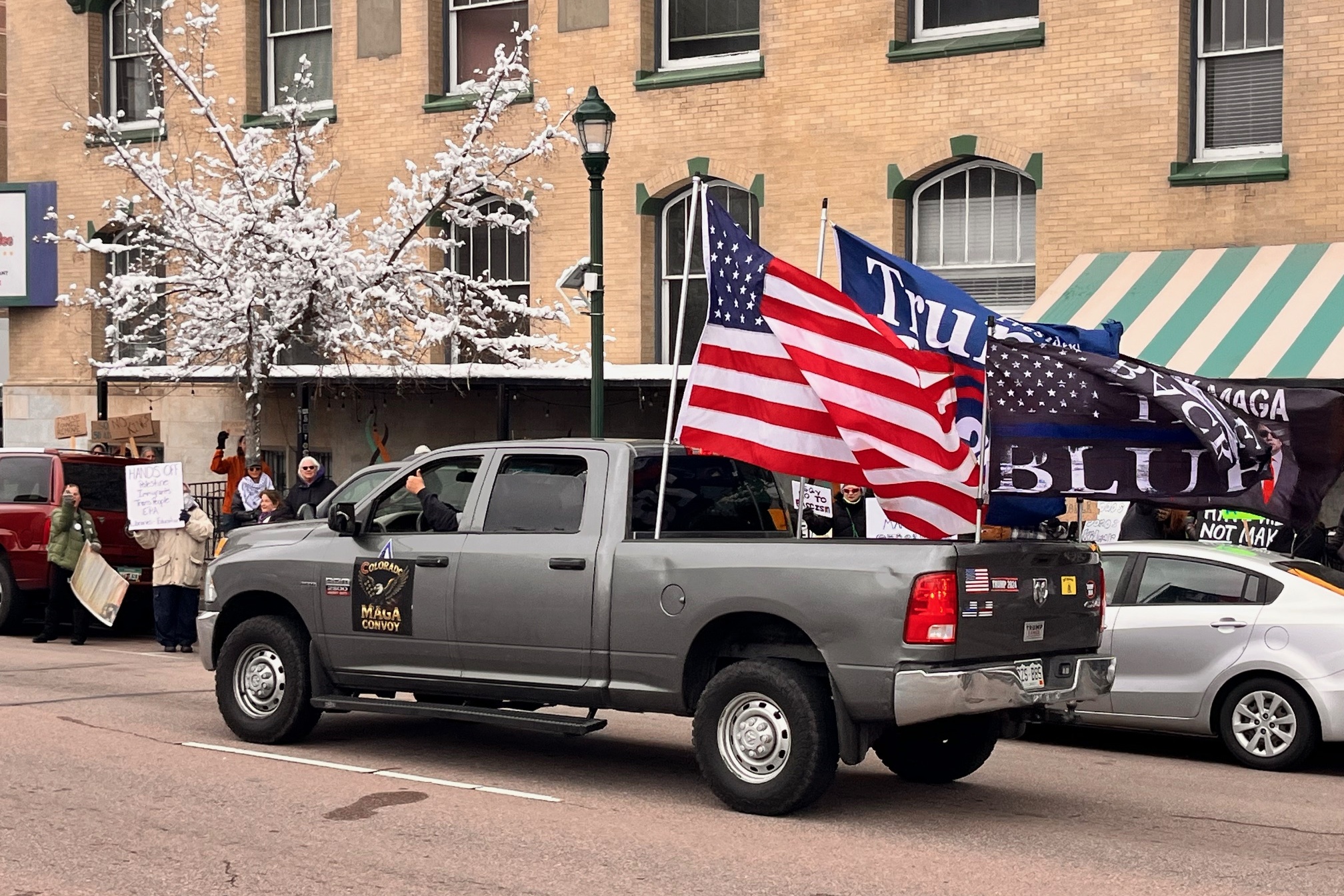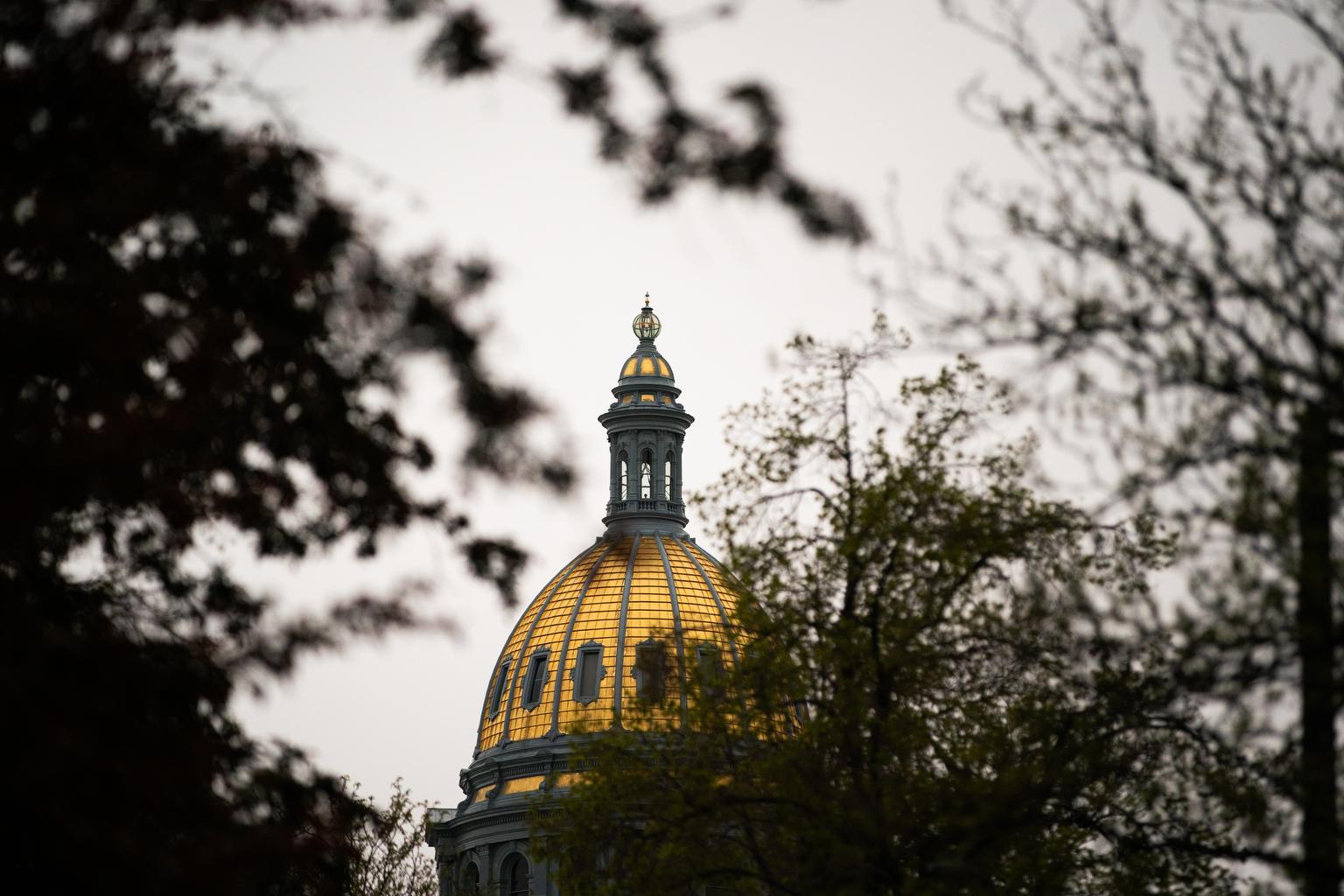
Even though the Supreme Court sided with Lakewood baker Jack Phillips in the Masterpiece Cakeshop case, the decision steered away from larger questions about religious freedoms and gay rights.
That narrow ruling has left the door open not just to future legal skirmishes, but also to conversations between Christians with different perspectives.
The high court's opinion was a stinging criticism of the Colorado Civil Rights Commission, which sided with the gay couple four years ago. The justices' decision heavily hinged on statements made by the commission that they found to be hostile to Jack Phillips' religious beliefs.
In his opinion for the Supreme Court, Justice Anthony Kennedy singled out one comment made by former commissioner Diann Rice:
“Freedom of religion and religion has been used to justify all kinds of discrimination throughout history, whether it be slavery, whether it be the holocaust, whether it be—I mean, we—we can list hundreds of situations where freedom of religion has been used to justify discrimination. And to me it is one of the most despicable pieces of rhetoric that people can use to—to use their religion to hurt others.”
Statements such as Rice's moved the needle toward the baker in the court ruling. But they also narrowed the implications of the case, keeping anti-discrimination laws intact and thus protecting the LGBT community's right to public accommodation.
But not all conservative Christians see the impact as limited, including Jeff Hunt, the director of the Centennial Institute, a think tank at Colorado Christian University.
"This was seismic in its long-term effects when it comes to religious freedom," Hunt said. "What this argued is that the government has to treat people of faith equally."
Hunt strongly disagrees not just with the content of Rice's statement, but also that it belonged in a hearing.
"You do not have that role in government to determine the validity or sincerity of someone’s religious beliefs," he said. "Doesn't matter. It does not matter."
But Miguel De La Torre, a social ethics professor at Iliff School of Theology and an ordained Southern Baptist minister, does not agree that Rice's comment was irrelevant, or even untrue.
"First of all, I think it does matter. And secondly, I think the commissioner was 100 percent correct. Religion, especially Eurocentric white Christianity, has been used in this nation’s history to genocide the Indians using the Book of Joshua, Manifest Destiny using the same book, slavery and Jim Crow laws based on Ephesians about 'slaves obey your masters,'" De La Torre said.
Hunt and De La Torre also have different perspectives on the legitimacy of Phillips' defense. While Hunt maintains that Phillips was not using religion to discriminate and was exercising his "deeply held beliefs," De La Torre finds those beliefs irrelevant if they cause others pain.
"I can appreciate his sincere beliefs, but if those sincere beliefs are causing discrimination and oppression, I really could care less about how those beliefs are sincere," De La Torre said.
The Centennial Institute joined conservative members of the state legislature in debates over the funding and structure of the Civil Rights Commission in the last legislative session. Hunt draws the focus of the case away from gay rights and to the commission's treatment of Phillips, saying it was "a sword by which it went after people of faith."
"This case was never about denying public accommodation rights to the LGBT community," Hunt said. "This was about protecting his freedom of religion."
Both De La Torre and Hunt know that the battle is far from over, with similar legal cases across the county coming down the pipeline as more states adopt anti-discrimination laws.
"We're in the midst of this conversation of how in a free society you can hold intention, religious freedom, and also the protected rights of the LGBT community, so that they're not treated as second class citizens," Hunt said. "We need to work through that as a nation."
De La Torre questions the validity of the compromise Hunt presents.
"Can you find common ground between a view that is based on the discrimination of a group of people, and those people demanding to be treated as human beings?" he said.









